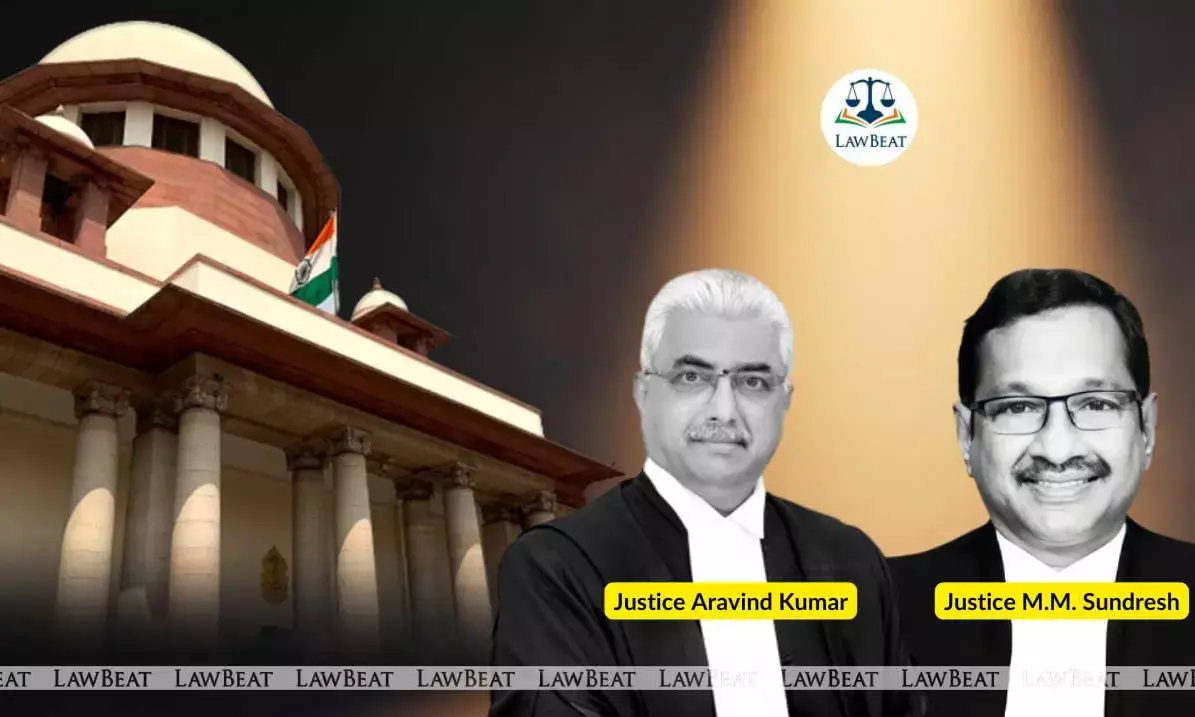Supreme Court Upholds Life Term of Law Student Who Conspired to Murder Fiancé With Lover’s Help

The Supreme Court has reiterated that a conviction can be sustained solely on the basis of circumstantial evidence if the chain of circumstances is “complete, cogent, and excludes every hypothesis except that of guilt.” Observing that motive assumes vital importance in such cases, the Court upheld the life sentence of Kum. Shubha @ Shubhashankar for the 2003 murder of her fiancé, which she orchestrated along with her boyfriend and two others.
A Division Bench comprising Justices M.M. Sundresh and Aravind Kumar dismissed the appeals filed by Shubha and her co-accused, declining to interfere with the concurrent findings of the trial court and Karnataka High Court. “Though we have discarded the eyewitnesses’ account… we find that the circumstantial evidence forms a complete chain pointing to the guilt of the accused,” the Court held, applying the five cardinal principles laid down in Sharad Birdhichand Sarda v. State of Maharashtra (1984) 4 SCC 116.
Brief Facts
Shubha, then a fifth-semester law student, was engaged to Girish, a software engineer, on November 30, 2003. Unhappy with the match, she conspired with her lover Arun Verma (A-1), his cousin Dinakaran (A-3), and Venkatesh (A-2), who ultimately assaulted Girish with a steel rod on the night of December 3 at Bengaluru’s Airport Road. Shubha had lured the deceased to the spot under the pretext of watching planes land. The murder was made to appear as a robbery or random assault.
Findings on Evidence and Motive
While the Court rejected the testimonies of the two alleged eyewitnesses (PW-15 and PW-16) due to serious inconsistencies and unexplained conduct, it accepted other forms of evidence as legally sufficient. The Court relied on:
1. PW-23’s testimony, a close friend of Shubha, who confirmed her strong resentment toward the engagement and desire to elope with A-1;
2. Call Detail Records (CDRs) showing sustained coordination among the accused between November 25 and December 3, 2003;
3. Recoveries of the murder weapon and getaway vehicle at the instance of the accused;
Consistent prosecution narrative, supported by forensic and circumstantial links.
“Motive serves as the foundation of the evidentiary chain that ultimately leads to the implication of the accused,” the Court said, quoting from Munish Mubar v. State of Haryana (2012) 10 SCC 464. The Court held that Shubha’s confession to PW-23 was both natural and voluntary, unlike the testimonies of other witnesses with possible interests or inconsistencies.
On electronic evidence, the Court upheld the admissibility of the CDRs under Section 65B of the Indian Evidence Act, rejecting technical objections raised by the defence. It held that “the certificates and procedures followed substantially satisfy the legal requirement and can be relied upon for establishing proximity and conspiracy.”
Reform, Alienation and Article 161
In a broader philosophical reflection, the judgment discussed how social alienation, particularly of young women facing familial and societal pressure, may lead to deviant behaviour. But the Court was categorical that such factors cannot override legal culpability. “While society’s own systemic failures may contribute to criminal behaviour… they cannot negate the responsibility of the offender, especially in a case of planned murder,” the Court observed.
It referred to the Governor’s constitutional power under Article 161 of the Constitution, noting that reform and re-entry into society remain within the domain of executive clemency, not judicial dilution. The Court distinguished the constitutional power to pardon from statutory remission provisions under Sections 432–433 of the CrPC (now Sections 473–474 BNSS, 2023), holding the former to be broader in scope and rooted in public morality and compassion.
“The power to pardon… is not a matter of grace but a constitutional duty to be exercised in aid of justice, not in defiance of it,” the bench said, citing Shatrughan Chauhan v. Union of India (2014) 3 SCC 1.
Finding no infirmity in the conviction or sentence, the Supreme Court dismissed all connected appeals and confirmed the punishment imposed. The case, the Court observed, was a tragic instance where a young woman’s personal rebellion crossed into criminality, leading to “the murder of an innocent young man, while simultaneously destroying the lives of three others.”
Case Title: Kum Shubha @ Shubhashankar v. State of Karnataka & Anr.
